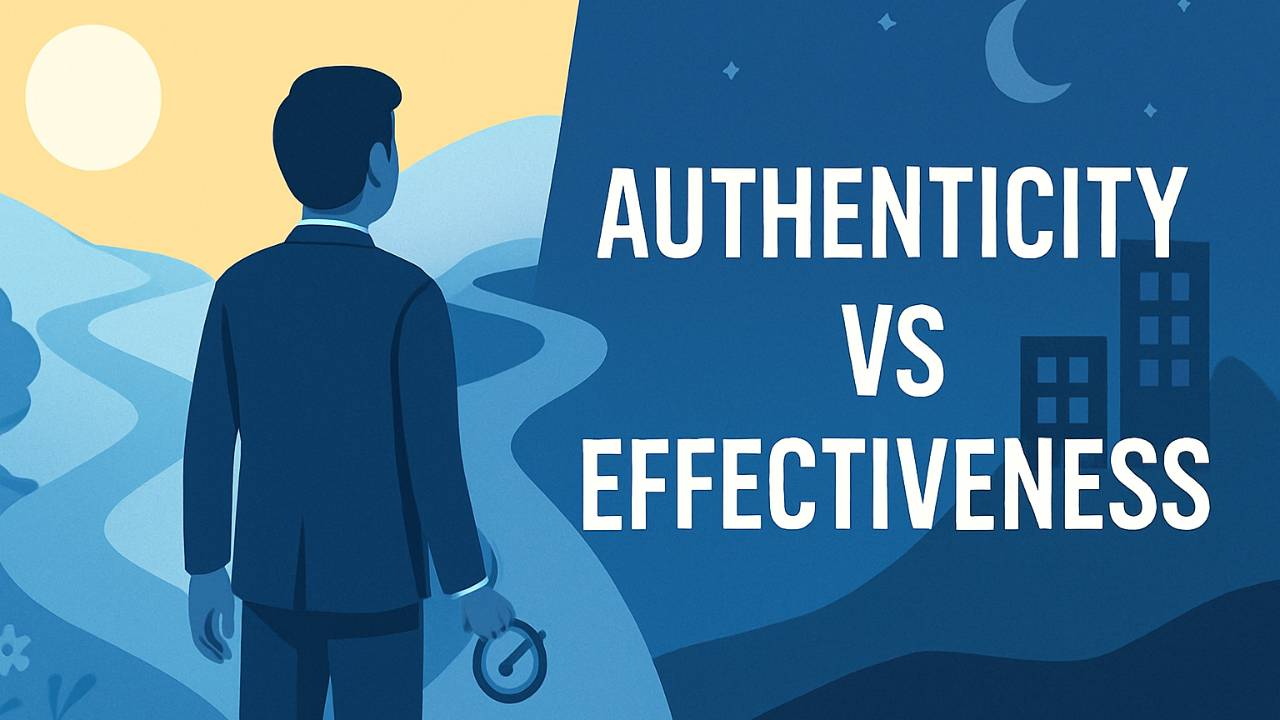The Paradox of Authenticity vs. Effectiveness in Leadership
Apr 24, 2025
Written by Susan Kuepfer
Consciously exploring and developing authenticity AND effectiveness is crucial as a leader.
Being an authentic leader means staying true to one’s values, beliefs, and identity, while being effective requires adapting and flexibly responding to the needs of the situation or team, enabling performance and strategy execution.
On one hand, being an authentic leader can build trust and inspire followers, but being too rigid or uncompromising may hinder effectiveness and limit success.
On the other hand, an effective leader must be able to communicate, motivate, and influence, while at the same time authentically connect with others, build trust, and be able to acknowledge their own vulnerabilities and limitations.
As a coach, I see three typical “awakenings” to the need to explore this paradox:
-
We realize we no longer like who we have become as leaders. We have been so busy being effective in the short term, we have forgotten our principles, values, and core beliefs.
-
Our team environment is no longer healthy and desirable. We are so anchored in the importance of our personal purpose, values, and beliefs that we forget we have a team who also needs good leadership practices to support them to flourish and perform.
-
There are lots of organizational metrics indicating something is out of whack. Turnover is going up, engagement is going down, tiredness and overwhelm are on the increase. While these are likely complex issues with more than one root cause, one root cause to explore is how we are showing up as leaders. Through our actions, what are we implicitly saying yes and no to? What culture are we creating?
That is why we design our Paradox Leadership programs to support each leadership level in developing and improving their leadership style (the balance of authenticity and effectiveness).
For example:
-
First-time leaders consciously create their authentic leader self AND develop specific leadership skills, beginning to bring these into one (their leadership style).
-
Leaders of leaders explore who they have become as leaders and who they want to be going forward.
-
Executives examine how their leadership is driving organizational culture and how that is helping drive strategic success.
In summary, at all levels of an organization, navigating the paradox of being an authentic and effective leader requires finding the right balance between staying true to oneself and flexibly adapting to new circumstances and team needs.
We hope you enjoyed this short introduction to exploring the paradox of being an authentic leader versus an effective one – there’s more in this short video!

